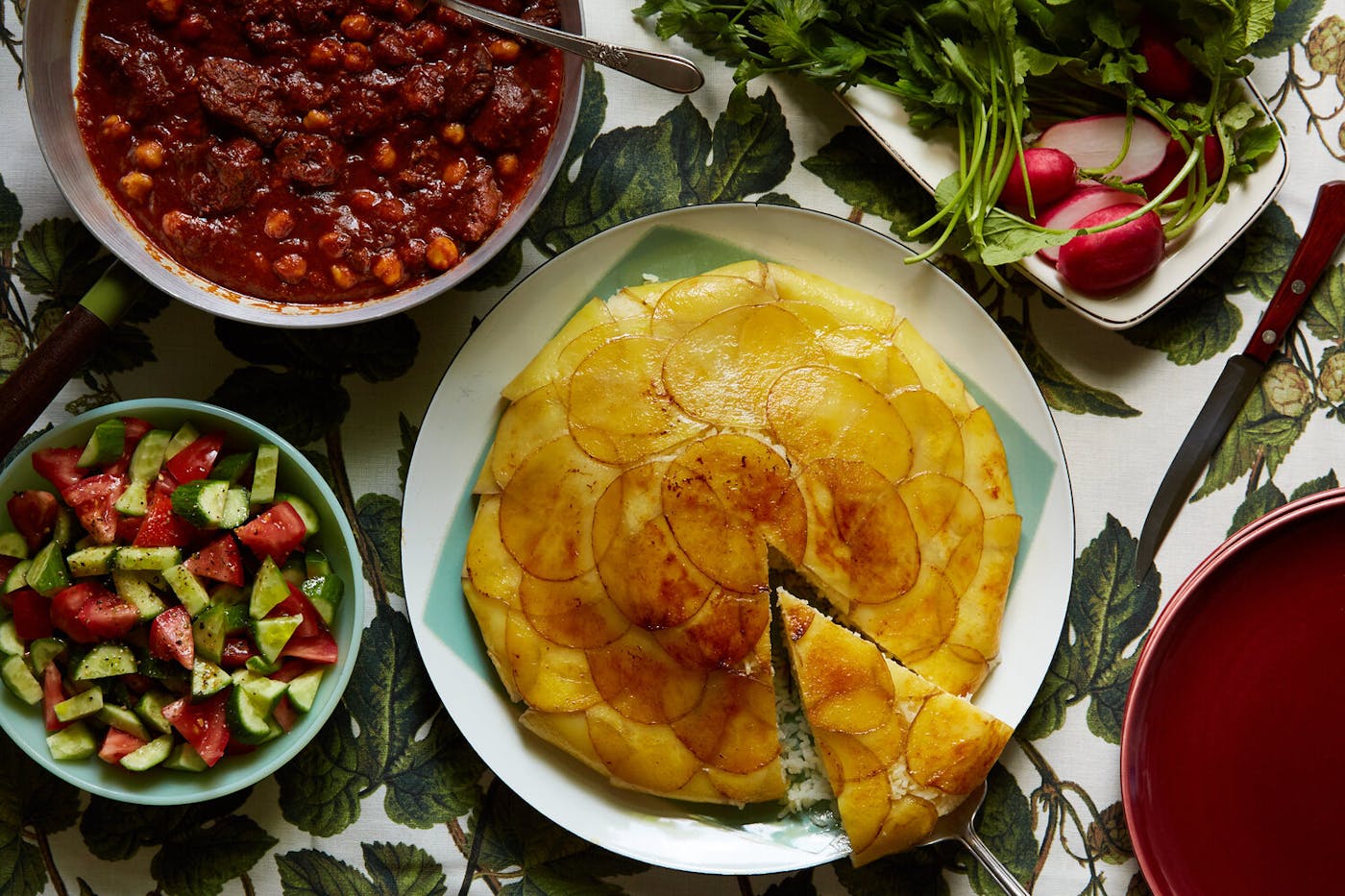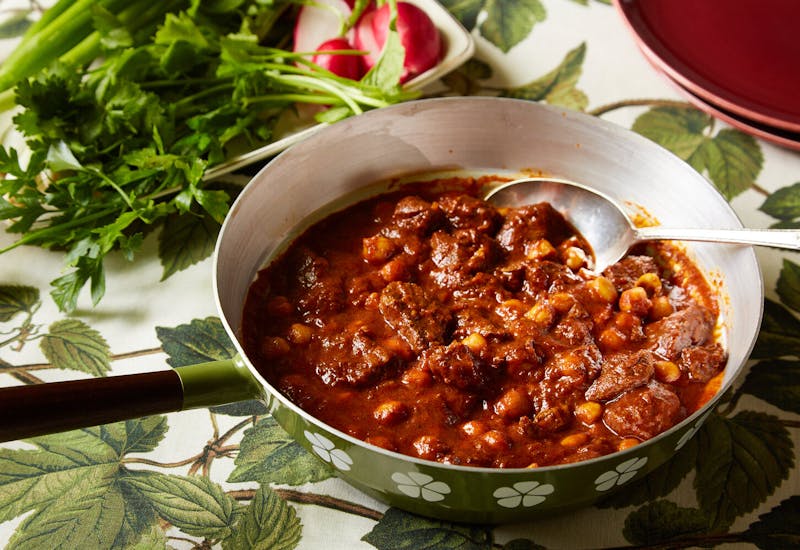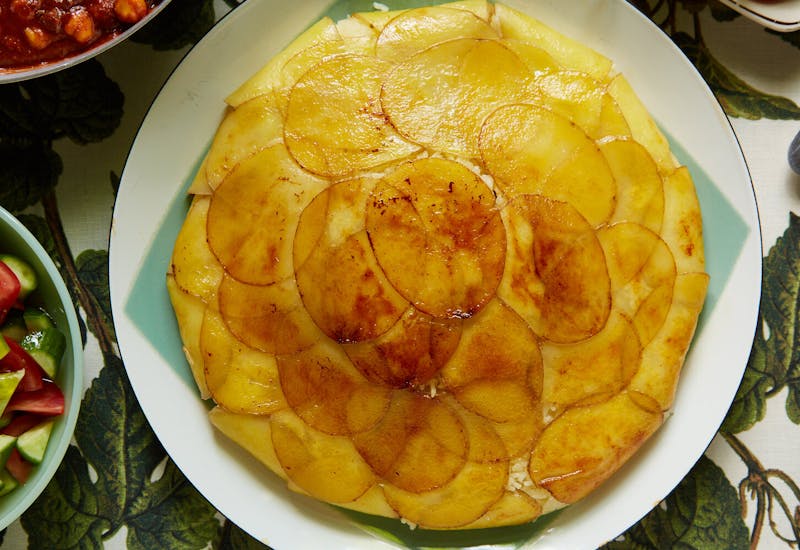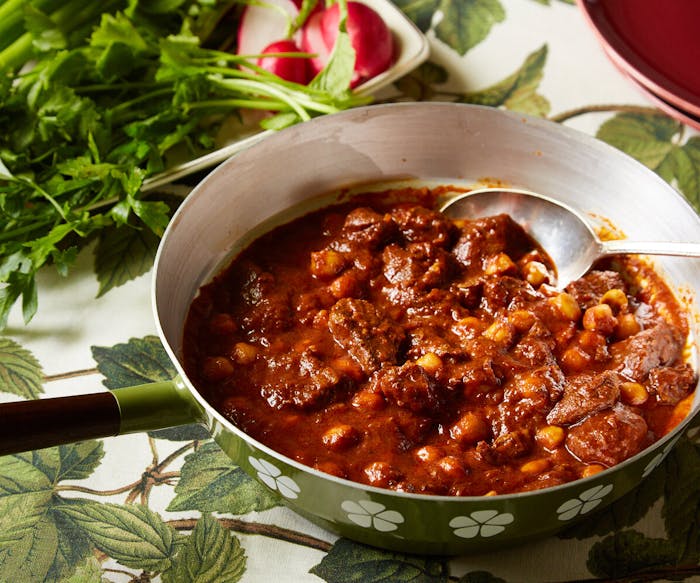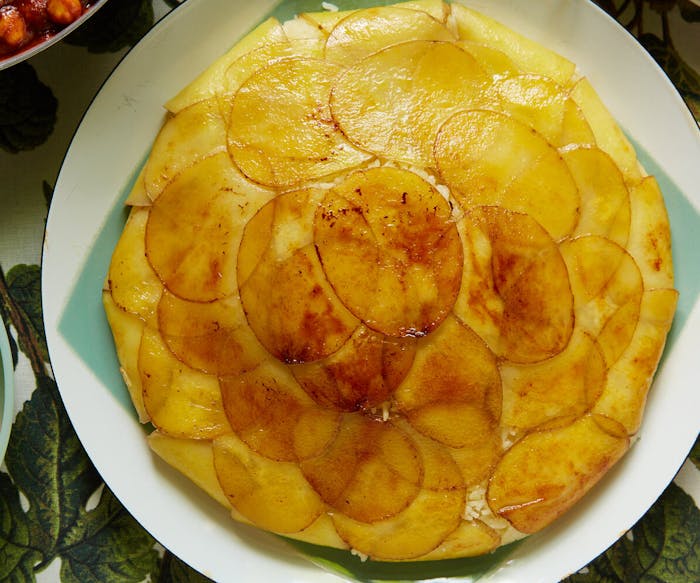In 1940 as the Blitz beat down upon London, writer Andrea Strong’s grandfather moved the family from their home in the city, to Torquay a seaside town several hours away. With the move, came the family’s tradition of serving khoresh, the Persian or Farsi word for stew. One day, as Andrea’s grandmother Sarah, known in the family as Bibi, prepared a khoresh for dinner, a bomb landed nearby, shaking the family and their temporary home. Pieces of the ceiling fell into the khoresh. “My grandmother was not about to waste dinner — it was during the war,” Andrea, who is a Brooklyn-based food writer, explains. Her grandmother fished out the pieces of the ceiling and — as family lore goes — said “it’ll be delicious, let me add some more salt.”
The move from London to Torquay wasn’t the first for the family’s khoresh recipes. Andrea traces them to her grandmother’s hometown of Mashhad, Iran, near the border with Turkmenistan — and her great-grandmother Hannah’s home. Living as a Jewish family in Iran was difficult for them in the early 20th century, so the family moved to Turkey for a time — though no one remembers where.
And they traveled to Palestine, where Sarah was married to her widowed uncle Isaac. “It was incestuous [but] it went on then…. I remember her telling me that she was very upset about it,” Andrea explains. Despite the circumstances, the marriage flourished. “She also told me that she fell madly in love with him and that they had a wonderful life.” Together, they moved to England where their children were born, and after the war, they immigrated to America.
As they built their home in Queens, khoresh remained a constant. Growing up, Andrea remembers Shabbat meals at her grandmother’s table: “there was always a feast,” she says. Typically Bibi served two kinds of rice, a plain white one and another with a potato crust or a green rice with dill and lima beans, plus a couple of stews or khoresh to go with them.
Bibi would always nudge those at the table to eat more rice acting as a sort of food police, Andrea says. “Food for her was family and joy and love and it was just what she did.” Cooking for her was always a joyful act. “She never did it with any misery or martyrdom,” Andrea adds. When she entertained, it was for 20 or 30 people, preparing food in pots so large they wouldn’t fit into kitchen cabinets.
Bibi’s signature stews were passed down. When Andrea was growing up, her mother made khoresh and rice. And, before Bibi passed away, Andrea went to Queens and watched her grandmother cook, absorbing the family traditions. Today, Andrea makes rice and a khoresh of beef and chickpeas on Fridays for her kids and for potlucks at their school. “My son, who generally doesn’t eat anything that isn’t white bread and cheese loves khoresh,” Andrea says. “I think my Bibi must have something to do with it.”
